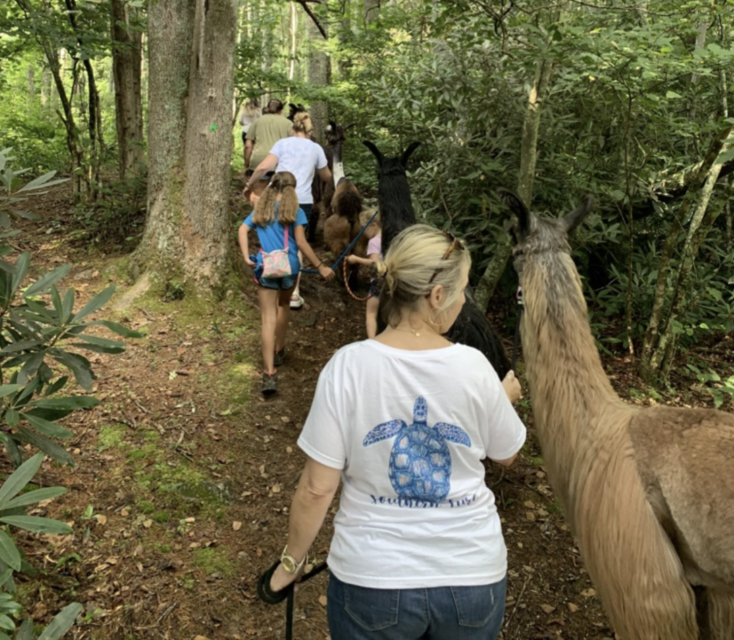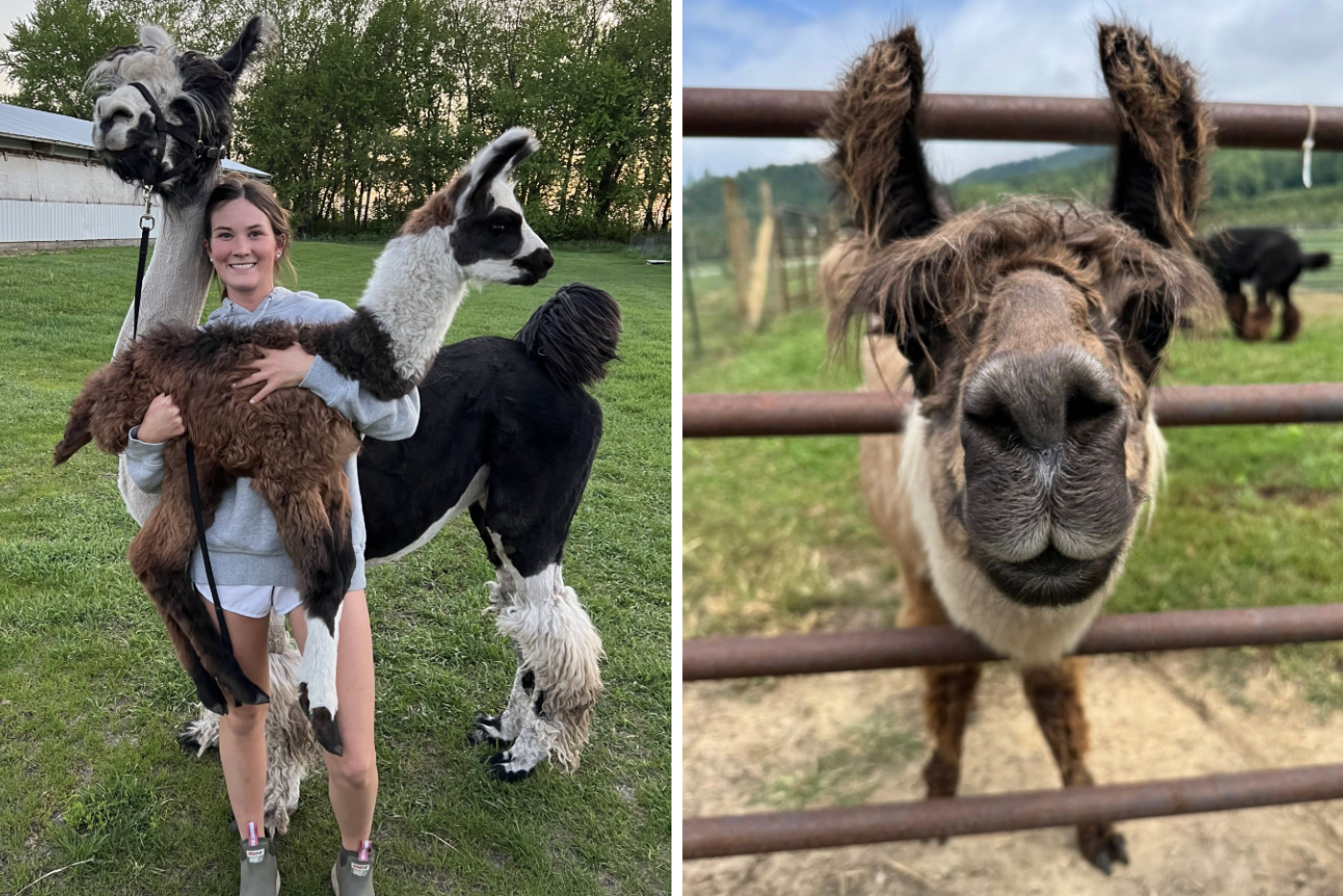Growing up as a seventh-generation apple farmer from Hendersonville, North Carolina, Allie Beck enjoyed helping her family tend to their livestock. She regularly cared for goats, chickens, cows, and pigs, but her life path changed when she was introduced to llamas. She acquired her first llama in 2017 and became passionate about introducing more people to these charming and unique creatures. By 2021, Ellaberry Farm was opened to the public for farm tours, birthday parties, llama treks, and private events. The family’s agritourism business grew quickly.
“We were extremely busy,” said Beck. “We would have over 3,000 people a week come to our little farm and see llamas in the peak season, like the summer and fall.”

Going all in on building a career in agritourism, Beck enrolled at Isothermal Community College in 2023, pursuing a two-year degree in Agribusiness Technology. Then, one year into her studies, Hurricane Helene hit western North Carolina.
“That morning, before the sun rose, we got a call from our neighbors who live closer to the llama farm than we do,” said Beck. “They said, ‘Everything is gone except for the barn that the llamas are in, and you guys need to hurry. You need to get here now.’”
Beck and her parents navigated massive amounts of debris to get to the farm. They arrived just in time to save the llamas, who stood neck-deep in the flooded barn.
“Most of the halters were washed away, but my dad found some rope,” said Beck. “We were able to swim to the llamas and get them out of there and save them.”
Once they knew their loved ones and livestock were safe, they began to assess the storm’s damage. Most of Ellaberry Farm had washed away, including a gift shop, several barns, farm equipment, and trailers, along with the pasture used for livestock grazing. "It was all gone, like it was never there,” said Beck.
Navigating recovery within the community and at Ellaberry Farm felt like a full-time job for Beck and her family. The staff at Isothermal Community College was quick to reach out to offer support and reassurance to students like Beck who were unsure if they could balance their academic loads with the new pressures they faced.
“My first thought was that I had too much going on to leave the farm. I didn’t see how I could possibly go back to class. No way,” said Beck. “I thought maybe I would wait until spring and finish then.”
Beck’s instructors worked quickly to delay due dates and offered students support and flexibility in any way they could. "The faculty and staff at Isothermal jumped into action immediately following Hurricane Helene, checking on our students and supporting our communities,” said Isothermal Community College President Margaret Annunziata. “They put our students first as they prioritized what needed to happen to support recovery. The compassion demonstrated wasn't surprising; it simply embodied the commitment that I see by our team every day."
In October, when state-funded tuition scholarships and emergency grants became available, Isothermal staff helped students connect with this new avenue of support. For Beck, the state-funded emergency grant helped with transportation costs. “I saw that there was going to be a grant for students affected by Helene. I couldn’t help but think that would be great,” said Beck. “My drive from the farm in Hendersonville to campus in Spindale takes an hour, so that’s a lot of gas.”

But Beck made it to her classes and completed her assignments. She graduated in March and works seven days a week managing the agritourism business, caring for the farm, and tending to their newest livestock additions. “We have lots of baby llamas, and they require a lot of work,” said Beck. “It’s a full-time job for sure.”
Tours and hikes are the most popular experiences at Ellaberry Farm, according to Beck. “People get to meet 15 to 20 of our llamas, they do obstacle courses with them, we teach them all about llamas and alpacas and apple farming, and they get the experience of a working farm,” said Beck. “There are still tractors working and driving by, and people love that – to step foot in that farm atmosphere.”
Beck says the scholarship and grant support she received, along with the flexibility offered by professors and campus leaders, helped her stay enrolled and complete her degree.
“I was able to get it all done, and I’m very thankful for that,” she said.
Visit our WNC Recovery Stories page to find more stories about student grant recipients, and to learn more about the people and organizations making a difference in western North Carolina.

